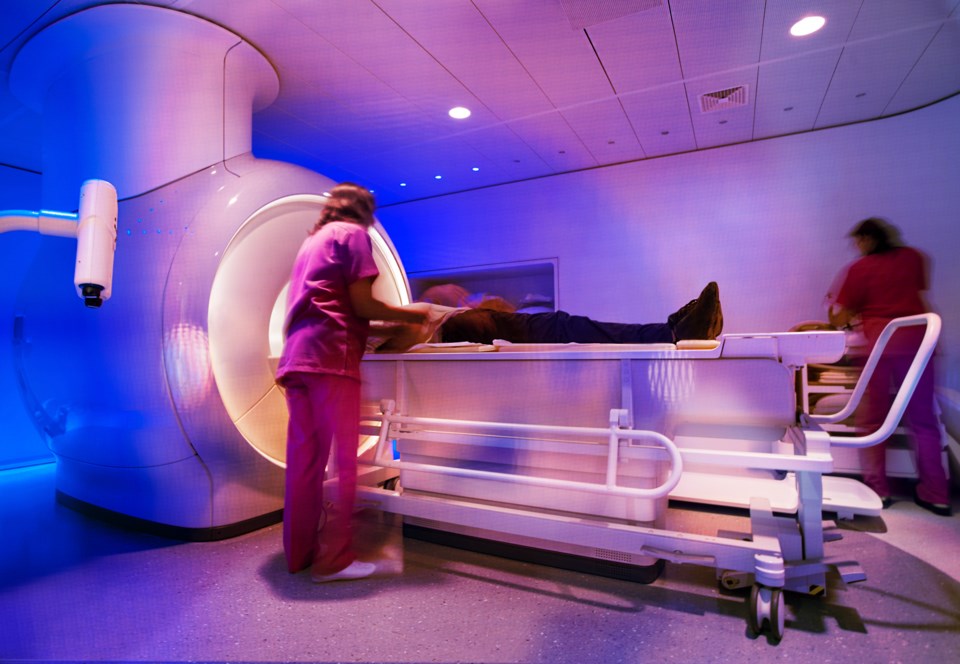Northern B.C.'s health authority saw a large increase in MRI scans completed during the first year (2018-19) of a new government program to increase the number of tests done per year more than any other region in the province.
According to numbers released by the government, more than 44,000 more scans completed were completed in 2018-19 compared to 2017-18.
Northern Health specifically had the largest increase.
In 2017-18, there were only 7,536 scans done.
In 2018-19, the number skyrocketed to 14,084, an 86.9 per cent increase.
“Our Surgical and Diagnostic Imaging Strategy has improved services for patients through capitalizing on existing public health resources and adding new capacity where required," Minister of Health Adrian Dix says in a release. "We are now taking further action to expand services and reduce waits by adding another 15,000 MRI exams to this past year’s success.”
The government says, in the first year of the strategy (2018-19), there were a total of 233,369 MRIs completed, while there were only 189,376 a year earlier.
The Ministry of Health says another $5.25 million will be invested in 2019-20, which they say will complete 248,369 exams annually.
“Our government has been very clear that the commitment announced last March to improve access to MRIs was not a one-time effort, but part of a multi-year strategy to reduce waits and leverage solutions and capacity in the public health-care system,” Dix adds in the release. “We have seen some great results in just the first year, which we will continue to build off in Year Two, so more and more patients can receive faster and more appropriate care. Simply put, we are just getting started.”
The ministry says running existing machines longer by adding evening, weekend and or/ statutory holiday shifts to current MRI machines has had a major part in the number of MRIs done going up.
According to the numbers released, at the start of 2019, of the 33 MRIs across the province, 10 ended up running 24/7. In Aug. of 2017, one was running 24/7 while 17 ran more than 19 hours per day.
The other health authorities finished with the following numbers comparing 2017-18 to 2018-19:
- British Columbia - 189,376 to 233,369 (23 per cent increase)
- Fraser Health - 55,723 to 65,302 (17.2 per cent increase)
- Interior Health - 20,726 to 27,219 (31.3 per cent increase)
- Island Health - 38,496 to 49,346 (28.2 per cent increase)
- Northern Health - 7,536 to 14,084 (86.9 per cent increase)
- PHSA - 9,753 - 12,812 (31.4 per cent increase)
- Vancouver Coastal - 57,142 to 64,606 (13 per cent increase)



